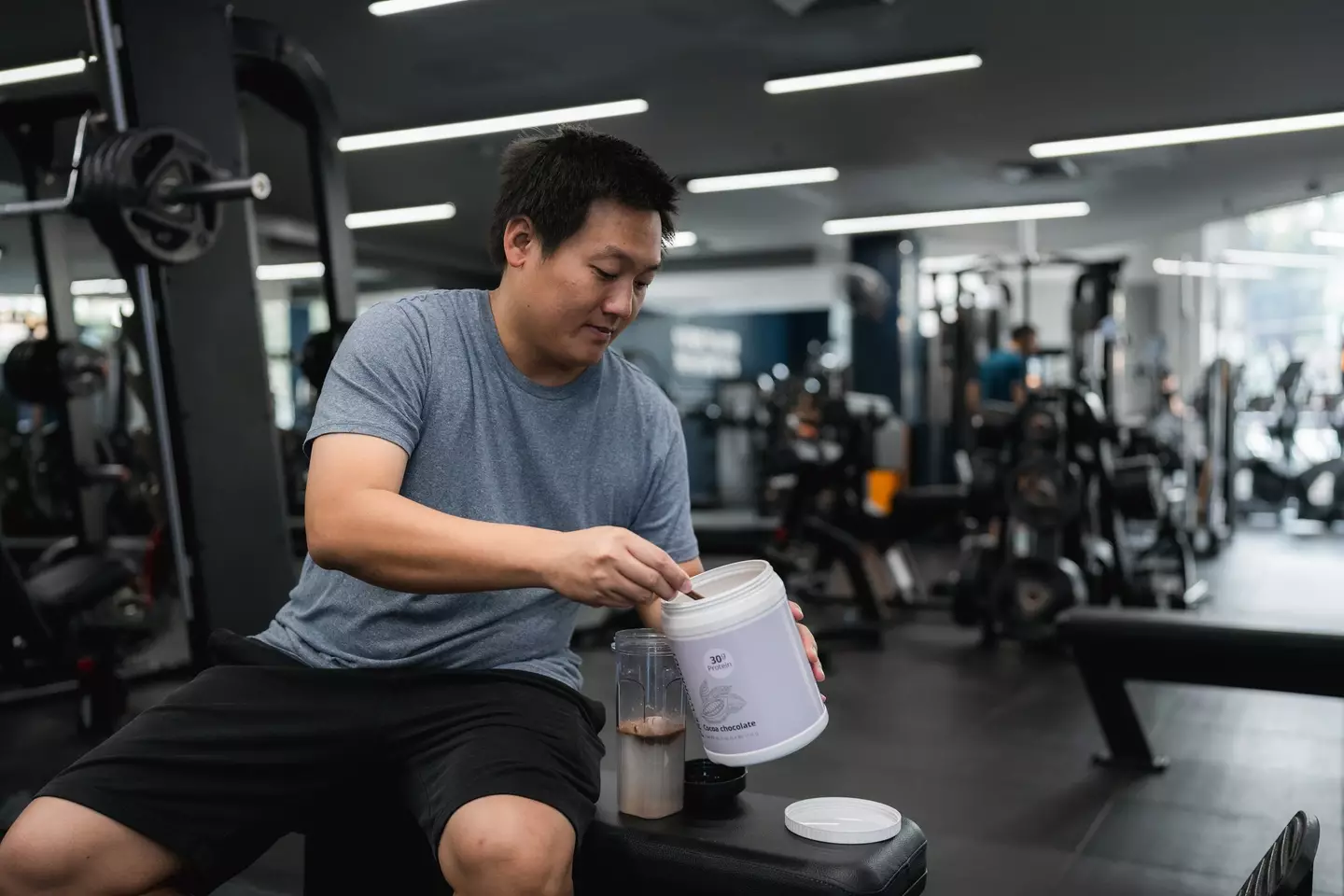
If you’re into your fitness, you’ve more than likely heard of pre-workout.
These supplements are generally sold in powder form to be mixed with water and drunk in the run-up to a workout. They’re usually packed with sugars and caffeine, with the idea being that they give your body a tonne of easily-accessible energy and stimulation so you can give it your all during a workout session.
Speaking to Men’s Health, sports nutritionist Rob Hobson said: “Pre-workout supplements can help give you the energy and focus to get through a tough session, especially if you’re training early in the morning or after a long day.”

Advert
He continued: “For me, the main performance benefits come from ingredients like caffeine, which is well-researched for improving alertness and endurance, and carbohydrates, which provide the fuel your muscles actually need.”
Generally speaking, they’re seen as safe when taken in moderation. However, following the tragic death of a personal trainer in the UK in 2021, the UK’s Food Standards Agency has revised its guidance around the popular supplement.
Tom Mansfield died at just 29 after taking too much caffeine powder. A miscalculation meant he had taken an enormous dose that equated to around 200 cups of coffee, and the resultant caffeine toxicity saw him collapse and sadly pass away.
In light of this, last year the FSA updated its guidance and recommendations to consumers and businesses. For one, it has reminded manufacturers of the need to provide clear, detailed labelling on food and related substances, as well as the need to provide a warning aroudn the risks of high-caffeine products and details around who is at particular risk.
The FSA noted that a survey found fewer than half of people who take supplements check the dosage instructions on the labels, with a fifth saying they don’t read the labels at all.
With this in mind, the FSA believes that many people are unaware of the caffeine content in certain supplements.
One element that isn’t addressed by the updated guidance is that these supplements are seen as food rather than medicine, and so the strict regulations on the latter – particularly around purported benefits they may provide – don’t apply to pre-workout supplements.
Raquel Britzke, a dietician and sports nutritionist who spoke with Men’s Health, said: “Pre-workout supplements offer numerous benefits when they are consumed in the right way and with respect to the individual's needs.
“They can contribute to better physical performance in sports by optimising strength, minimising fatigue and improving endurance, focus, and generating more energy during training.”
However, he added: "A lot of supplements don’t have inside what the labels say they have. A lot of creatine gummies don’t have creatine, for instance.
"Because they [supplements] are regulated as food, there may be increased risks of cross-contamination with allergenic, prohibited, or undeclared substances."

Hobson agreed: “It’s important to check the actual dose of these ingredients in your pre-workout.
“A lot of the time, the amount of creatine or beta-alanine, for example, included is below the clinically effective range, so you won’t get the full benefits unless you’re supplementing separately.”
To minimise your risk and ensure you’re getting a decent supplement, Hobson recommended ‘looking for products that are Informed Sport-certified, or batch tested’.
